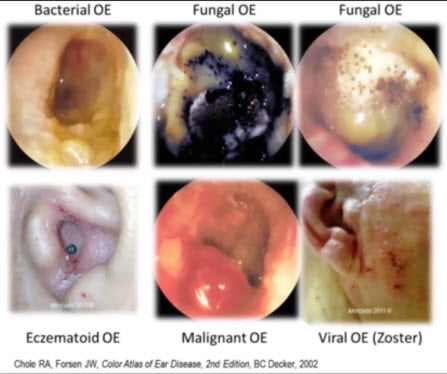Wonder Me!
Table: Medically relevant streptococci (not all are alpha hemolytic)
https://en.wikipedia.org/wiki/Streptococcus_pyogenes
| Species | Host | Disease |
| S. pyogenes | human | pharyngitis, cellulitis |
| S. agalactiae | human, cattle | neonatal meningitis and sepsis |
| S. dysgalactiae | human, animals | endocarditis, bacteremia, pneumonia, meningitis, respiratory infections |
| S. bovis | human, animals | biliary or urinary tract infections, endocarditis |
| S. anginosus | human, animals | subcutaneous/organ abscesses, meningitis, respiratory infections |
| S. sanguinis | human | endocarditis, dental caries |
| S. suis | swine | meningitis |
| S. mitis | human | endocarditis |
| S. mutans | human | dental caries |
| S. pneumoniae | human | pneumonia |
Wonder Me!
Streptococcus pyogenes is a species of Gram-positive bacteria. These bacteria are aerotolerant and an extracellular bacterium, made up of non-motile and non-sporing cocci. As expected with a streptococci, it is clinically important in human illness. It is an infrequent, but usually pathogenic, part of the skin microbiota.
https://en.wikipedia.org/wiki/Streptococcus_pyogenes
https://en.wikipedia.org/wiki/Streptococcus_pyogenes
Wonder Me!
S. aureus (/ˌstæfɪləˈkɒkəs ˈɔːriəs, -loʊ-/,[12][13] Greek σταφυλόκοκκος, "grape-cluster berry", Latin aureus, "golden") is a facultative anaerobic, gram-positive coccal (round) bacterium also known as "golden staph" and "oro staphira". S. aureusis non-motile and does not form spores.
Wonder Me!
P. aeruginosa is a facultative anaerobe, as it is well adapted to proliferate in conditions of partial or total oxygen depletion.
Viz: otitis externa
https://en.wikipedia.org/wiki/Pseudomonas_aeruginosa#Biology
Viz: otitis externa
https://en.wikipedia.org/wiki/Pseudomonas_aeruginosa#Biology
Wonder Me!
FTI stands for the Free Thyroxine Index and it is an estimation of the free T4 concentration
Thyroid hormone blood tests include:
- Total thyroxine (T4). Most of the thyroxine (T4) in the blood is bound to a protein called thyroxine-binding globulin. Less than 1% of the T4 is free. A total T4 blood test measures both free and bound thyroxine. Free thyroxine affects tissue function in the body, but bound thyroxine does not.
- Free thyroxine (FTI or FT4). Free thyroxine (T4) can be measured directly (FT4) or calculated as the free thyroxine index (FTI). The FTI tells how much free T4 is present compared to bound T4. The FTI can help tell if abnormal amounts of T4 are present because of abnormal amounts of thyroxine-binding globulin.
- Triiodothyronine (T3). Most of the T3 in the blood is attached to thyroxine-binding globulin. Less than 1% of the T3 is unattached. A T3 blood test measures both bound and free triiodothyronine. T3 has a greater effect on the way the body uses energy than T4, even though T3 is normally present in smaller amounts than T4.
 |
| Photo credit: http://ancestralmomentum.com/2011/12/takin-a-peek-under-the-hood-hackin-my-bloodwork/ |
https://www.labcorp.com/test-menu/35801/thyroid-profile#
Sample lab report: https://www.labcorp.com/sites/testmenu/files/000455.pdf
Lab interpretation: https://www.labcorp.com/tests/related-documents/L964
Resources:
https://www.webmd.com/women/thyroid-hormone-tests#1
Wonder Me!
One way to remember ADL vs IADL on exam is to think which activity ur 3yo (ADL) can do vs ur 10yo (IADL) can do ~by Qt
Wonder Me!
The 2008 report recommends a daily intake of vitamin D of 400 IU/day for all infants and children beginning in the first few days of life.
The 2008 report recommends a daily intake of vitamin D of 400 IU/day for all infantsand children beginning in the first few days of life. Human milk typically contains avitamin D concentration of 25 IU per liter or less. Therefore, a supplement of 400 IU per day of vitamin D is recommended for all breastfed infants.Jun 17, 2015
The 2008 report recommends a daily intake of vitamin D of 400 IU/day for all infantsand children beginning in the first few days of life. Human milk typically contains avitamin D concentration of 25 IU per liter or less. Therefore, a supplement of 400 IU per day of vitamin D is recommended for all breastfed infants.Jun 17, 2015
Vitamin D Supplementation | Breastfeeding | CDC
https://www.cdc.gov/breastfeeding/recommendations/vitamin_d.htm




